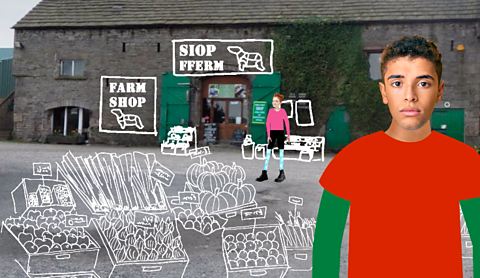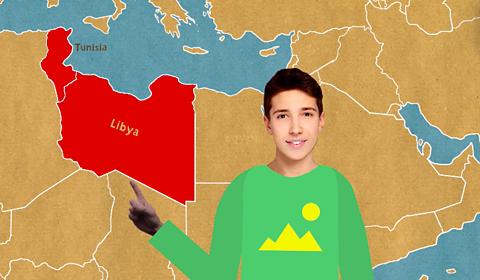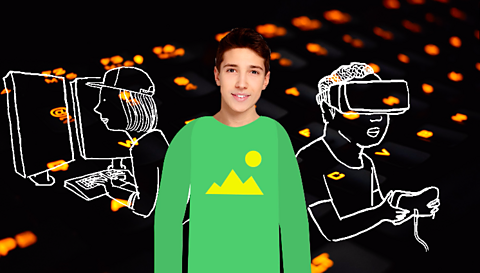MEERA: Let’s talk revolution.
JAC: Revolution? That’s a bit brutal.
MEG: Not always.
GETHIN: Really? What about the French Revolution or the Russian Revolution?
MEERA: That’s only if you think of a revolution as always being political. You know, one government or social order being overthrown by another.
GETHIN: Yeah, like the French Revolution. Brutal. The starving poorer classes cut off the heads of the greedy aristocracy.
MEG: But as I said, it doesn’t have to be brutal. Think of the Industrial Revolution.
MEERA: Was that a proper revolution?
MEG: Yes. There were protests, but also the whole social order was changed as machines replaced people. People’s lives changed dramatically. But we’ve all accepted that way of life now and it’s made life easier. I guess if the new world after a revolution makes more people happy then surely that’s a good thing.
MEERA: Yes, but there are two sides to everything. Like Margaret Haig Thomas. Nowadays we see her as a revolutionary, but at the time people were really critical.
GETHIN: Who’s Margaret Haig Thomas?
MEERA: Lady Rhondda. She was born into a privileged Welsh family in 1883 and became a well-known and powerful businesswoman.
JAC: Doesn’t sound like much of a revolution.
MEERA: She used her power and influence to fight for women’s rights.
JAC: So why were people critical of her?
MEERA: Because she took part in marches with the Suffragette movement, she set fire to a post box and she even jumped on the Prime Minister’s car.
JAC: Maybe it wasn’t just her methods that people were critical of though. There were also people who didn’t believe women should get the vote or have their own money. It was a very different world back then.
GETHIN: So in other words a revolution can be worth all the trouble if there’s a better outcome afterwards.
MEERA: Exactly. Because now we see someone like Margaret Haig Thomas as a hero.
MEG: Just like Eileen Beasley. She’s now known as the Rosa Parks of the Welsh language movement.
JAC: Why?
MEG: It was the 1950s and she refused to pay her council tax because the bills weren’t in Welsh. The bailiffs came and took all her possessions. Three times. She and her family really suffered for their beliefs. She also campaigned for all road signs in Wales to be bilingual. So you see, revolutions don’t always have to be brutal - just one or two people can make a massive difference.
MEERA: Don’t forget the peaceful revolutions that can come through parliamentary decisions.
JAC: That’s how Aneurin Bevan went about it. From a young age he was aware that many people couldn’t afford any health care. He eventually became an MP and helped found the National Health Service which gave free treatment for all. That was certainly a revolution in UK healthcare.
MEERA: So…
GETHIN: What?
MEERA: …of all these historic revolutions, which one…?
GETHIN: Had the most chopped off heads?
MEERA: No. I was thinking which one would you say has made the most difference?
The scripted characters in this series, Meg, Gethin, Jac and Meera, are based on interviews conducted with real Welsh teenagers. In this film, they examine significant historical revolutions in a Welsh and global context, and analyse how interpretations of these events have changed over time.
Teacher notes
Progression Step 4
Four teenagers examine significant historical revolutions in a Welsh and global context, and analyse how interpretations of these events have changed over time. Meera, Jac, Gethin and Meg talk about an array of historical revolutions, from the French and Russian revolutions, to the suffragette movement and the creation of the NHS. They break down what the term revolution means, and look at different types of revolutions - governmental, social and cultural - and discuss specific individuals in order to better understand the meaning of revolution and revolutionary. These revolutionaries, all relevant to modern Welsh history, include Aneurin Bevan (MP and co-founder of the NHS); Eileen Beasley (activist in the Welsh language movement) and Margaret Haig Thomas (suffragette).
Curriculum notes
- Students could be asked before they watch the film what they know about the term revolution and if they have any prior knowledge that they can share. In pairs, they could come up with a definition of the word ‘revolution’ before watching the film.
- Students could be given a research task and asked to find out about a range of different revolutions or revolutionaries.
- Students might carry out extra research on the subjects in the film and create their own piece of work on them.
- Students might debate whether revolutions should ever be violent.
- In groups, students could debate whether violent or non-violent revolutions have had the most impact.
- Students could examine what it takes to be a revolutionary.
- Students could create slogans to support the revolutions seen in the film.

More from this series:
First impressions. video
Four teenagers from Wales are interviewed on their first impressions of one another.

Modern-day revolutions. video
Four teenagers discuss modern revolutions, from the Middle East to Wales.

Who am I? video
Four Welsh teenagers introduce themselves and key parts of their personal identity.
